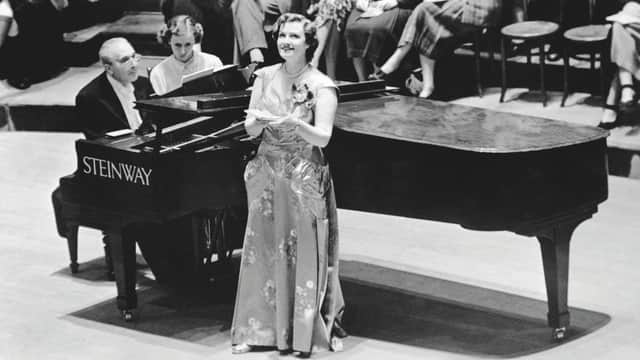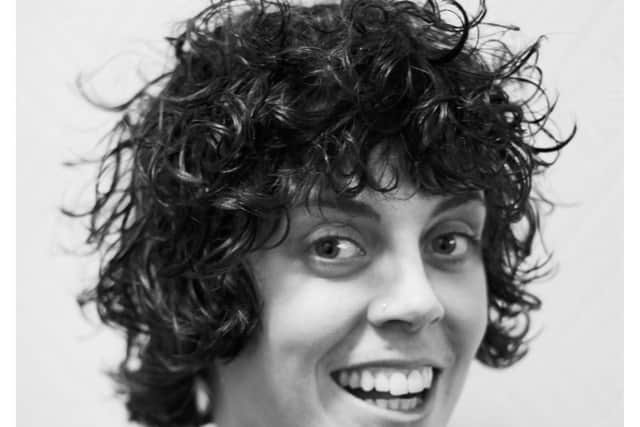The future will be localised - Morvern Cunningham


Even now one year later many institutions and organisations are unable to return to any degree of normalcy, if at all. Early on in the first lockdown, the mantra of “Build Back Better” seemed to be on everyone’s lips, the phrase itself conjuring an image of reanimated wartime spirit warm in the comforting message that not only would eventually things come back as before, but they would also be somehow miraculously improved at the same time.
The subsequent reality however, has been rather more stark than this initial optimism may have led us to believe. Since the crisis began, our governments have failed millions of people – in particular, the vulnerable and the minoritised. We now know without question that people in care homes, disabled people, people of colour and/or those from working class backgrounds in this country have been disproportionately affected by the crisis.
Advertisement
Hide AdAdvertisement
Hide AdCrucially, as we now find ourselves in the midst of the UK-wide vaccination programme and new roadmaps out of the latest lockdown are variously devised and rolled out, we are at a perilous turning point. With Edinburgh’s major festivals expressing ‘optimism’ in the possibility of returning to the city in physical form in the summer of 2021 and other cultural players putting pressure on the government for dates of reopening, the arts and culture sector faces a very real and present danger. It faces the danger of returning to a kind of normal that we saw pre-pandemic – one that already wasn’t working for the vulnerable and the marginalised. Only this time however, the normal we are heading back to is likely to be even worse than before, to be even more unequal, increasingly competitive and less caring of its people as a direct result of the crisis.


Amidst this looming hellscape, an element of hope may yet endure through the current darkness. There is a palpable sense that it’s now even more urgent than ever that we use this enforced pause as an opportunity to shape what our future and the future of our children will be, as we start on the journey to reimagine and rebuild a more equitable society that works for the benefit of the many, as opposed to the few. No longer is it reasonable to assume that structures and processes take place simply because “this is the way we’ve always done things.” In the light of the current crisis, we as a society are increasingly questioning this mindset. Indeed, “Why are we doing what we’re doing?”, “What is the purpose behind what we’re doing?” and “Who is this really serving?” are all important questions to be asking ourselves as we emerge from the pandemic.
The flourishing of the human spirit
We find ourselves in a similar position now to over 70 years ago and the genesis of the first Edinburgh International Festival, where it was recognised that art and culture were a means to healing a broken and exhausted society - then coming out of the end of the Second World War. It is certain that the full impact of the global crisis on our way of life and on our communities long-term is yet to be fully felt, yet cultural activity is undoubtably one key way to process the communal trauma we have all experienced in the last twelve months.
This time however, our systems and processes have to be rebuilt sustainably. We cannot simply go back to how things were before; that way we’ll simply retain a flawed system that was unhealthy from its roots. A radical cultural shift in our value systems and the support structures that uphold them is required in order to generate a tangible change in the way cultural activity is expressed in the city. This isn’t the job of any one person or entity to address, we all have to be willing to do the work in order to collaboratively achieve a better balance of power going forward. The work of change is for all of us and I passionately believe that now is the ideal time to implement meaningful change, across the board. If a global pandemic which shuts everything down overnight and then continues to keep things closed for a year and more isn’t the impetus for starting again with care and love and the power of hindsight, then frankly, I don’t know when is.
The COVID-19 pandemic has acted as both an amplifier and a fast forward button in terms of current inequalities rising to the fore and the speed of development. It has proven that we need to pay attention and invest in the local, in our immediate environment. We’ve all been shopping, working and socialising locally as a result of the restrictions experienced in the last 12 months. These trends towards the local are projected to continue post-pandemic, with a general societal move towards supporting local independent businesses, flexible working patterns and greater use of local green spaces. As our future will be localised, it is up to all of us to contribute to a better outcome for ourselves and others as we go forward into the great unknown of a world post-pandemic. We no longer find ourselves in a Build Back Better scenario, but instead one of rebuilding. Let us rebuild a city of care, one that values its people first and foremost, one that nurtures its grassroots arts and community activity, that is committed to representation at each and every level, promotes health and wellbeing above economic models, and one that includes everyone in discussions about the future of their city.
The full text of Edinburgh Reimagined: The Future Will Be Localised can be purchased from Leith-based social enterprise Out of the Blueprint’s online store: https://outoftheblueprint.selz.com/item/edinburgh-reimagined
Comments
Want to join the conversation? Please or to comment on this article.